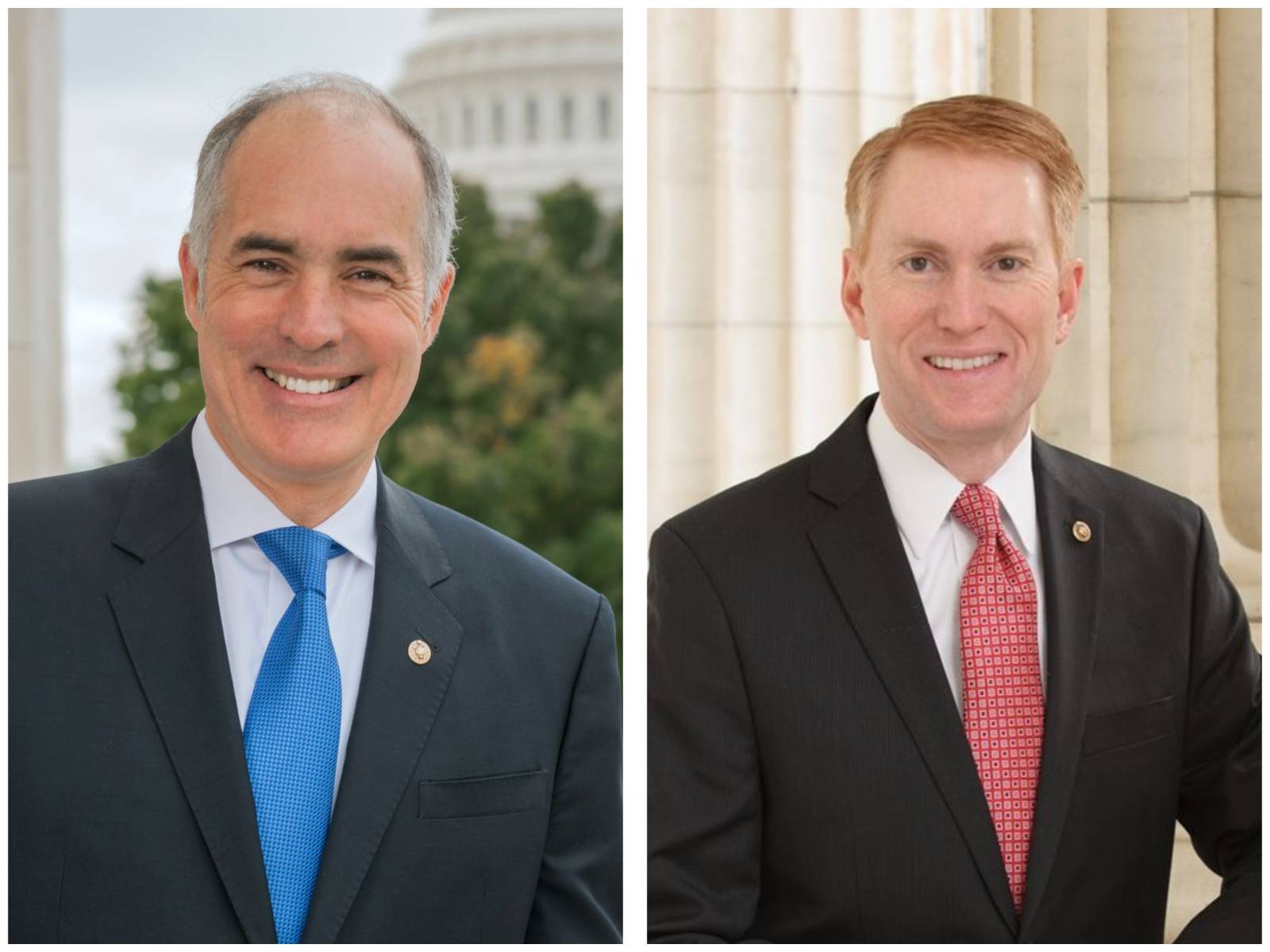Bipartisan group of senators seeks to prevent ‘drastic cuts’ to hospitals
In October, a key Medicaid program for safety net hospitals is slated to be cut by $8 billion. Lawmakers say it could threaten the viability of hospitals and reduce care to those who need it most.
More lawmakers are pushing to block the reduction of billions of Medicaid dollars to hospitals.
U.S. Sen. Bob Casey, D-Pa., left, and U.S. Sen. James Lankford, R-Okla., led a bipartisan group of lawmakers in an appeal to Senate leaders to prevent billions in cuts to a Medicaid program for hospitals. (Photos: U.S. Senate offices)

A bipartisan group of 51 senators have written a letter to Senate leaders urging them to prevent planned cuts to the Medicaid disproportionate share hospital (DSH) program. The program aids hospitals with a high percentage of patients who rely on Medicaid.
Unless Congress intervenes, the program is facing a cut of $8 billion beginning in October. The program is supposed to be cut by $8 billion annually through 2027.
U.S. Sen. Bob Casey, D-Pa., and U.S. Sen. James Lankford, R-Okla., led their colleagues on the Aug. 3 joint letter. The letter was sent to U.S. Senate Majority Leader Charles Schumer, D-N.Y., and Senate Minority Leader Mitch McConnell, R-Ky.
“The Medicaid DSH program keeps many hospitals financially viable and able to provide care to vulnerable individuals,” the senators wrote. “Drastic cuts to this program could lead to a reduction in access to care for those who need it most.”
America’s Essential Hospitals, a trade group representing safety net hospitals, pushed lawmakers to sign the letter. The organization has said if the Medicaid cuts went into effect as scheduled, it would deliver a body blow to some hospitals and could even lead to some hospitals closing their doors.
“Our members are heavily dependent on Medicaid,” Beth Feldpush, senior vice president of policy and advocacy for America’s Essential Hospitals, told Chief Healthcare Executive® in a January interview.
The planned cuts in the DSH program were implemented on the premise that fewer patients would need Medicaid coverage thanks to the Affordable Care Act, and hospitals would need less help. While more people have health insurance, hospitals are still caring for more patients who rely on Medicaid and have no additional coverage.
“Those coverage levels have not been fully realized yet these hospitals continue to care for uninsured and underinsured patients,” the senators wrote.
The senators warned that the planned cuts could have grave consequences for hospitals.
“Cuts of this magnitude could undermine the financial viability of hospitals, threatening access to care for the most vulnerable Americans,” the letter states. “It is essential that we continue to protect those who have come to rely on the services provided by Medicaid DSH hospitals.”
Other senators who signed the letter include U.S. Sens. Elizabeth Warren, D-Mass.; Tammy Duckworth, D-Ill..; Bill Cassidy, R-La.; and Marco Rubio, R-Fla.,
The senators’ letter marks the latest bipartisan effort to prevent cuts to the DSH program. In April, a group of House members introduced a bill to prevent the cuts.
Casey is the chairman of the Senate Special Committee on Aging, and Lankford is the ranking Republican.
When the Centers for Medicare & Medicaid Services finalized their inpatient payment rates for 2024 last week, hospitals voiced heavy criticism over plans to reduce aid to the DSH program by nearly $1 billion.
Hospitals have also been starting to see an uptick in costs for charity care as some states reduce the number of people on their Medicaid rolls, according to Kaufman Hall, a healthcare consulting firm. Healthcare groups warn millions of Americans could lose Medicaid coverage in the coming months.
Telehealth faces a looming deadline in Washington | Healthy Bottom Line podcast
February 12th 2025Once again, the clock is ticking on waivers for telemedicine and hospital-at-home programs. Kyle Zebley of the American Telemedicine Association talks about the push on Congress and the White House.